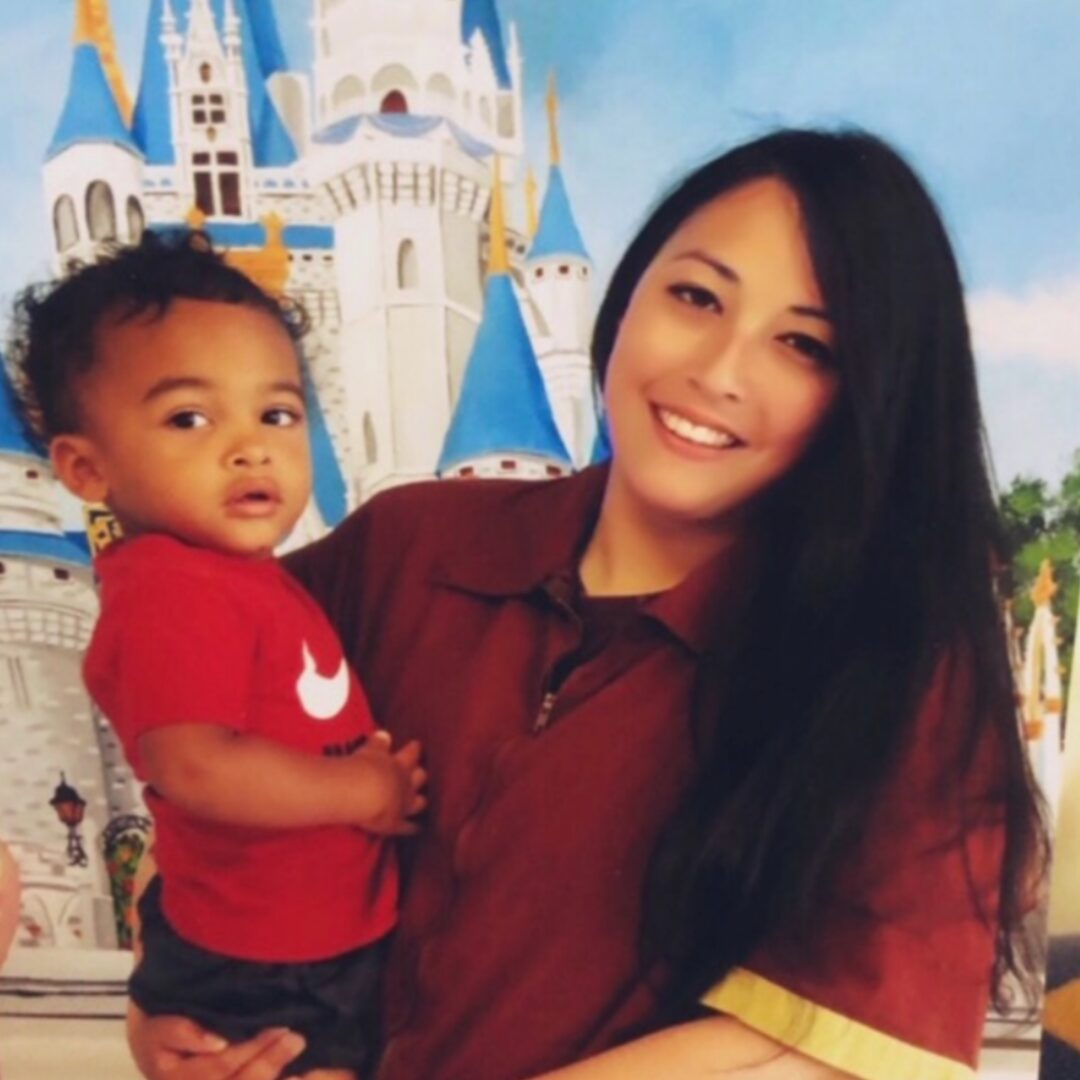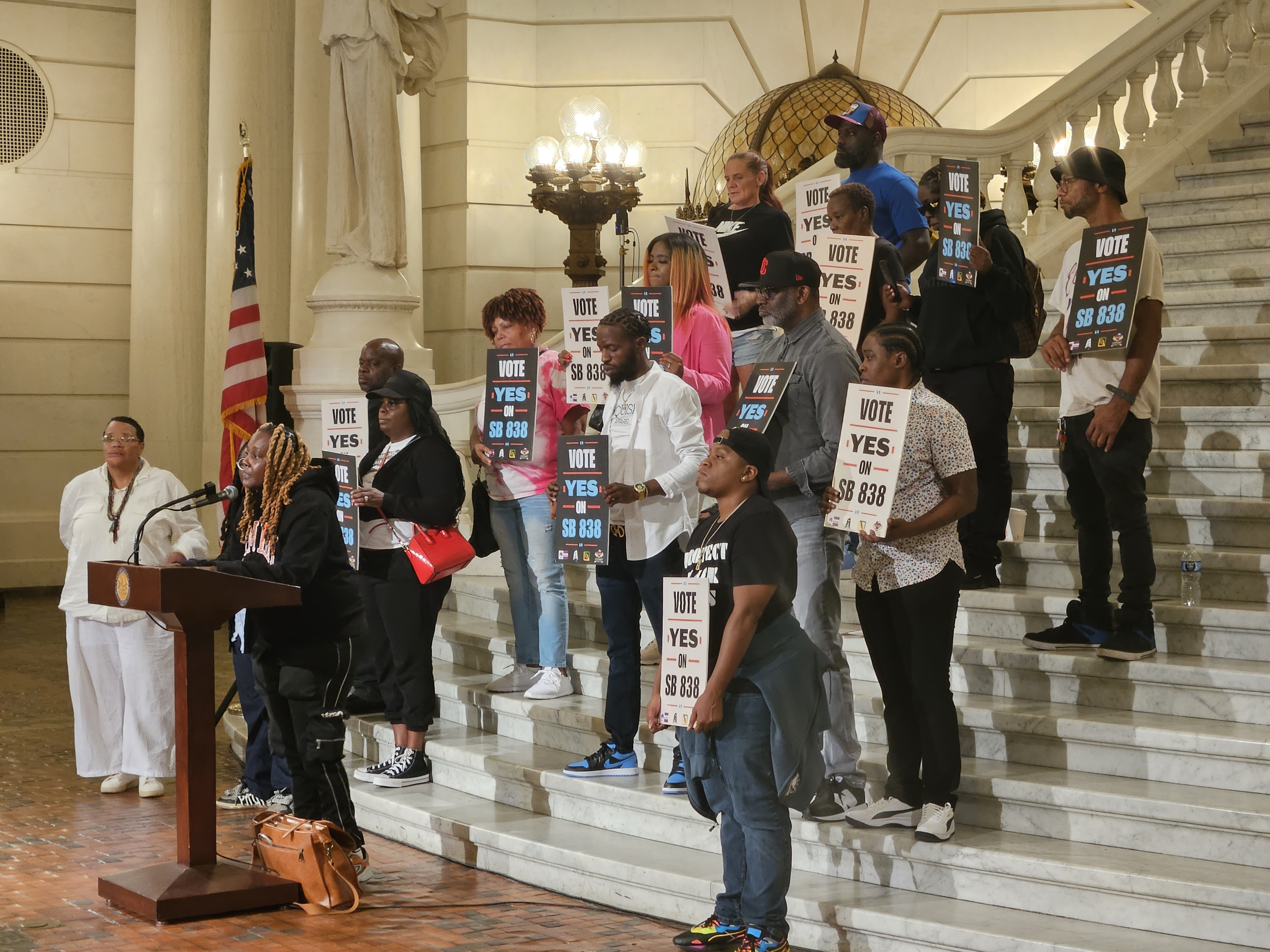
How These Six Women Navigated Supervision While Juggling The Demands of Motherhood
By Billy Glidden, Senior Communications Manager
Over the past four decades, the number of incarcerated women has skyrocketed. According to the Bureau of Justice Statistics, the female incarcerated population today is nearly seven times higher than it was in 1980. Roughly 60% of incarcerated women today have minor children and, before incarceration, had served as their children’s primary caregiver.
Many of these women will one day return home and have to balance the responsibilities of motherhood with the requirements of our nation’s supervision systems. For these mothers, simple family moments are anything but. For mothers on probation or parole, taking your child to their favorite arcade or making a late-night grocery run without special permission could result in technical violations, landing these mothers right back behind bars. When the simplest tasks, the formative moments, or the things children rely on their moms for are hampered by supervision, nobody is made safer.
This Mother’s Day, we’re shining a light on six women who had to do just that, persevering against the odds to support their families. Their stories remind us of the importance of building systems that treat everyone with dignity and respect. Today they’re all off supervision, but their experiences are invaluable in spotlighting the need for change. In their own ways, they’re each fighting for a system that affords mothers the care they deserve.
Judith Negron went from a 35-year sentence to fighting for change at the White House.
Judith Negron, mother of two, was sentenced to 35 years in federal prison for a first-time white collar offense. Eight years later, President Trump commuted her sentence, and she was released from prison in February 2020.
“Your loved ones do each and every day of that incarceration with you,” she says. “Your children are incarcerated with you. Your spouse is incarcerated with you.” She focused on what she could control, teaching classes on the inside and helping develop a parenting program that fostered a more welcoming environment for kids to visit.

Upon her release, she was placed on federal supervision, and lived in constant fear that a single misstep would result in her being sent back to prison. She feared for herself, but even more for her kids. She couldn’t imagine leaving them again. “I didn’t want to mess up.” To avoid accidentally violating any of the dozens of rules of her supervision, she stayed home for months.
Still, she focused on her blessings. Being home with her family, she said, made her feel a gratitude she can’t put into words. “To be able to hug my children without the limitations and constraints of a prison wall is the most wonderful feeling a mother can experience.” She also fought to free others, especially the women she left behind those prison walls. She traveled from her home in Florida to the White House to make the case for more freedom and more rehabilitation.
In December of 2020, President Trump commuted the remainder of Judith Negron’s federal supervision term. She was finally free.
When Megan Parke got home from prison, she wanted to make up for lost time. Probation made that harder.
In 2016, Megan Parke found herself incarcerated, a result of her proximity to her husband’s criminal activity. To make matters more complicated, she was pregnant. Her pregnancy was high risk, but she delivered a healthy baby. She was released in 2019, and was sentenced to serve probation and parole simultaneously.
Upon her return, she was determined to be a loving, present mother to her youngest child, Amir. She wanted to make up for lost time. That’s what she did, but the system – all the rules and requirements of her supervision – made her jump through hoops to do so.
“The system is stopping families from being families,” she says. Because of the conditions of her supervision, even a trip to the arcade with her five-year-old could prove perilous. “Technically, if my son wants me to take him to Target or Chuck E. Cheese, I need a Travel Pass, because it’s out of my county. So, I mean, technically, if I go and get stopped, that would be a violation.”

In addition to caring for her young child, Megan served as the primary caregiver for her mother, who was very ill. Despite having to navigate the nightmarish bureaucracy of supervision – including dealing with five separate POs – she managed these family responsibilities with grace and an abiding love. Today she is off supervision, after receiving early termination. By sharing her story, she is fighting to make sure the system will set mothers up for success.
Tameka Felder’s probation term kept getting extended. Then she helped pass a transformative new law.
Tameka Felder, a mother of two, was initially sentenced to five years on probation. But her term kept getting extended, and extended, and extended again. “My own PO said that I was on probation for 20 years with him,” she says. “He was about to retire, and I was still here.”
She was devoted to her kids, but probation often got in the way of what she wanted to do for them. “There have been several times I had to miss school events,” she says, “because probation said I had to report at 3 o’clock.” Since her kids were teenagers, she found herself lying to them about why she couldn’t show up; she didn’t want them to know how the system was holding her back. She also had to pay restitution, and the albatross of a criminal record made it hard to find work. “These things follow you,” she says.

In recent years, she’s turned her pain into purpose. Her children are adults now – 19 and 21 – and she is making them proud, lifting her voice in support of a better, fairer system. After earning early termination herself in 2023, she joined the fight to pass SB 838, a REFORM-backed bill that limits technical violations and incentivizes personal growth. Her advocacy helped get that law across the finish line, bringing major reforms to Pennsylvania’s probation system and making a difference in tens of thousands of lives.
Meghan Ross overcame addiction, became an outreach worker, and is now back in school – all while being the mother she always wanted to be.
Being a mother is the most important part of Meghan Ross’s life. She knows all too well the pain of being separated from her daughter, and she works every day to help other moms who have faced similar struggles.
In 2013, deep in the throes of addiction, Meghan got a drug charge that resulted in a two-year probation sentence. In 2016, still on probation, she relapsed. She missed some meetings with her PO, received a technical violation, and was given a 2-year prison sentence, along with 8 years of probation. She needed help, but instead, she received punishment – and a lengthy supervision term.

Meghan overcame her addiction and became an outreach worker, helping others find a path to recovery. She is currently in school to become a realtor, and she’s excited about this new career path.
Her daughter, Lily, is 12 years old now. Meghan has opened up to Lily about what caused their time apart, and she’s now the kind of parent and role model she always wanted to be. Every day, she shows her daughter that people aren’t defined by their mistakes, but by their willingness to keep trying. “Life has been beyond my wildest dreams,” she says.
When her daughter got pregnant, Marcella Soto couldn’t cross state lines to visit.
While she was still a young mom in southern California, in a rocky relationship with her husband, Marcella often relied on food stamps and government assistance to survive. Although she reported each time the two split up, because aid is determined by how many adults reside in a household, she was charged with fraudulently receiving government benefits. Prosecutors wanted her to spend years behind bars. Rather than risk going to trial, Marcella took a plea deal: a 5-year probation sentence. She lost her job, and as a result of her conviction, she struggled to find work.
In 2021, the true cost of her probation term was made plain to her, when her daughter moved to Texas. The problem: A condition of Marcella’s probation was that she couldn’t cross state lines. She realized that it could be years before she could visit her daughter.
“When my daughter got pregnant,” Marcella says, “she pleaded for me to be there for birth. But my PO would not approve my travel. Missing the birth is one of my life’s biggest regrets.”
One day, while scrolling on Instagram, Marcella saw a post on Meek Mill’s profile and learned about REFORM Alliance. From there, she learned about AB 1950, a REFORM-championed bill in California that had become law. She realized that she had a chance to get off probation early.
“Soon I found myself in front of a judge who was looking at my accomplishments while on probation,” she says. Marcella had worked hard, finding an employer that was willing to look past her record. She was well on her way to rebuilding her life. “Employed, promoted, no violations.”
The judge ended Marcella’s probation three years early. She’ll never forget going to work the next day and finding that her coworkers had brought in a celebratory cake for the occasion. She relocated to Oklahoma, where she reunited with her daughter and helped raise her grandson. Her record has been dismissed by the court system, and she’s starting a new state job later this month.
Heather Canuel gave birth while chained to a state prison bed. Today she’s helping others heal through the power of art.
In 2003, while pregnant, Heather Canuel was imprisoned for driving with a revoked license. She became the last Illinois woman to give birth while shackled to a bed in a state prison. In 2022, despite being free for more than a decade, she received a two-year probation sentence for a driving-related incident. She struggled to pay her fines and fees, and her probation sentence kept getting extended. She was finally able to get off probation when Kim Kardashian and Michael Rubin, via their association with REFORM Alliance, helped pay off the last of her fees.
Today, Heather does incredible work at the intersection of art and activism. She is a member of the Envisioning Team at Illinois Humanities and is the founder of Art from the Heart, an organization that creates a safe space for youth who have experienced the loss of a parent to incarceration.

She also does incredible advocacy work. A proud member of the REFORM coalition, she helped pass legislation in support of ensuring dignity for incarcerated women. She is a proud mother and grandmother, and she is certain that the best days still lie ahead.
These stories make it clear: If we want to honor our mothers, we need to build a system that sets them up to succeed – a system built on rehabilitation, not needless punishment. It’s time to reform probation and parole.